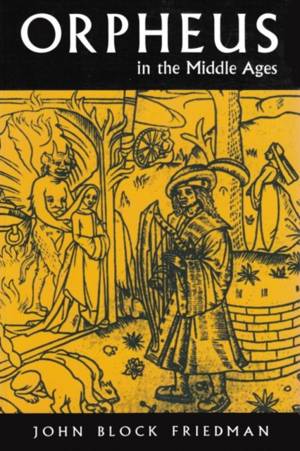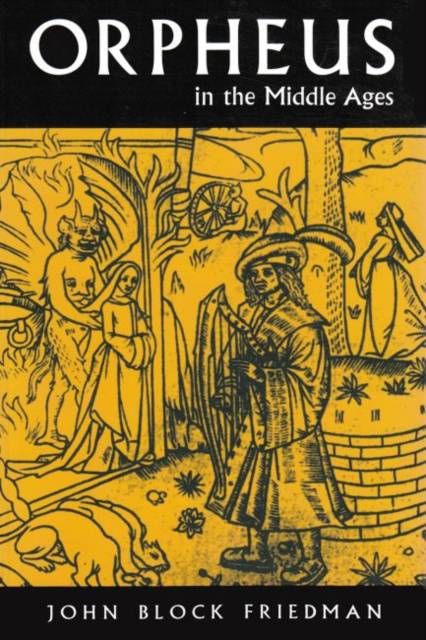
- Retrait gratuit dans votre magasin Club
- 7.000.000 titres dans notre catalogue
- Payer en toute sécurité
- Toujours un magasin près de chez vous
- Retrait gratuit dans votre magasin Club
- 7.000.0000 titres dans notre catalogue
- Payer en toute sécurité
- Toujours un magasin près de chez vous
45,95 €
+ 91 points
Description
Orpheus, the Thracian signer who charmed nature with the music of his lyre and traveled to the underworld to win back his wife, Ewydice, is a familiar figure in Western culture. Yet, as each age modified his deeds and altered the narrative to make the Orpheus myth conform to the values of the day, his legend acquired many new and surprising meanings.
Friedman examines the various reshaping's of the myth from the Hellenistic age through the late Middle Ages. He presents primarily a literary study, but draws as well upon art and iconography, indicating how literary characterizations of Orpheus gave rise to new iconographical details for his portrayals in art, which in turn led to different portrayals in literature. He first outlines the figure of Orpheus in antiquity. He continues with anexamination of the significant conceptual changes in the Orpheus myth. In the religious and philosophical writings of Hellenistic Jews and, later, Christians, Orpheus appears as a monotheist. He emerges as a Good Shepherd figure in late antique art and eventually is identified with Christ as a guide of men's souls to the afterlife. In the Middle Ages, Orpheus' relationship with Ewydice gains importance. The pair first serve a didactic and moralizing purpose, coming together as in Boethius' Consolation of Philosophy, more as the abstractions of reason and passion than as tragic lovers. In the later Middle Ages, however, they appear as a secular couple who illustrate the power of the god Amor over the human heart. Orpheus becomes a courtly knight and the writer of
elegant love lyrics. The blending of these two medieval traditions is seen in Robert Henryson's Orpheus and Eurydice. Friedman pays special attention to this work as well as to the romance Sir Orfeo. Thus, the propagation of religious belief--one of the primary concerns of the early Middle Ages-- was reflected in the early conceptions of Orpheus. Later, with the growth of the courtly love tradition Orpheus and Eurydice became significant as lovers. This book illustrates the vitality and flexibility that a myth must possess as it adapts to different eras and embodies the interests and concerns of each.
Spécifications
Parties prenantes
- Auteur(s) :
- Editeur:
Contenu
- Nombre de pages :
- 288
- Langue:
- Anglais
- Collection :
Caractéristiques
- EAN:
- 9780815628255
- Date de parution :
- 01-06-00
- Format:
- Livre broché
- Format numérique:
- Trade paperback (VS)
- Dimensions :
- 153 mm x 228 mm
- Poids :
- 403 g

Les avis
Nous publions uniquement les avis qui respectent les conditions requises. Consultez nos conditions pour les avis.






